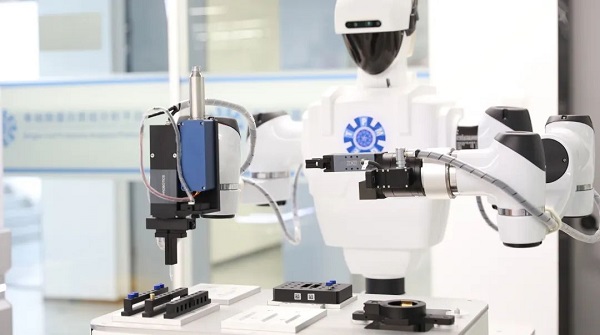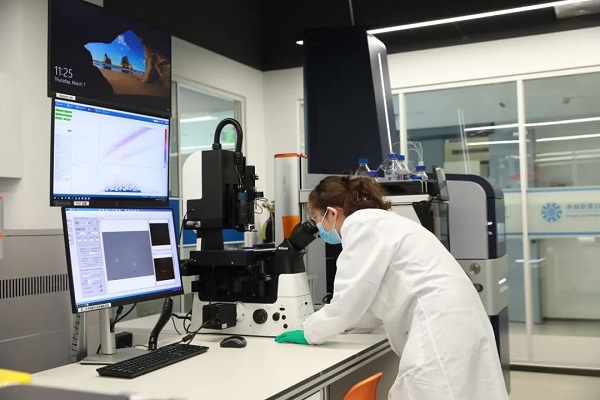zhejiang university launches 'cell interpreter' for advanced disease diagnosis

the robot is able to work around the clock in the lab. [photo/wechat account: hiczju]
zhejiang university unveiled its cell interpreter, the country's first fully-automated single-cell proteomics analysis platform, at the hangzhou global scientific and technological innovation center on march 7.
the revolutionary tool offers a new understanding of cell growth, disease progression, and drug development, providing insights and tools for medical research.
professor fang qun, head of the project, described the platform as "sharp eyes" capable of analyzing protein changes in individual cells with unprecedented precision. the team has enabled the identification of over 3,000 types of proteins in a single mammalian cell, surpassing existing techniques.
performing proteomics analysis at the single-cell level has proven to be a formidable challenge internationally due to the minuscule quantity of proteins in each cell, equivalent to a fraction of a millionth of an ant's mass, combined with the presence of nearly 20,000 different protein types.
with the cell interpreter, complex and precise operations such as cell capture, sample preprocessing, chromatographic separation, mass spectrometry detection, and data processing can now be fully automated, with robotic arms and machinery working around the clock in the lab.
the platform promises to be a game-changer in the field of precision medicine. for cancer patients, it can help assess disease severity, identify specific characteristics of cancer cells, detect metastasis, and aid in the selection of targeted drug treatments.
moreover, by analyzing protein expression characteristics of cancer cells, especially drug-resistant cells surviving after treatment, scientists can discover new drug targets and design more precise and effective treatments.
the team is currently collaborating with multiple hospitals in zhejiang province to apply the platform in early cancer diagnosis, accurate classification, personalized treatment, and drug development, paving the way for advanced medical research and patient care.

a member of professor fang's research team. [photo/wechat account: hiczju]
-
'nice' to meet you, hangzhou
may 6, 2024

